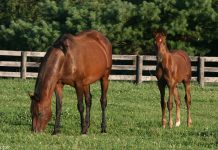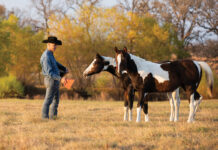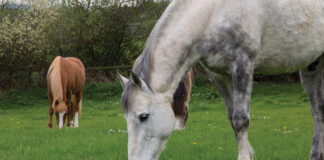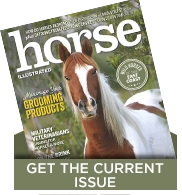A horse’s digestive system is very different from a human’s. Horses are hindgut fermenters, which means the bulk of their digestion happens in the large intestine. Forage is key to keeping this part of the system moving. Even horses that need to lose weight still need forage—and quite a bit of it. The minimum amount of forage a horse should have is 1.5 percent of his body weight per day. For a 1,000-pound horse, that’s 15 pounds of hay or pasture (dry weight).
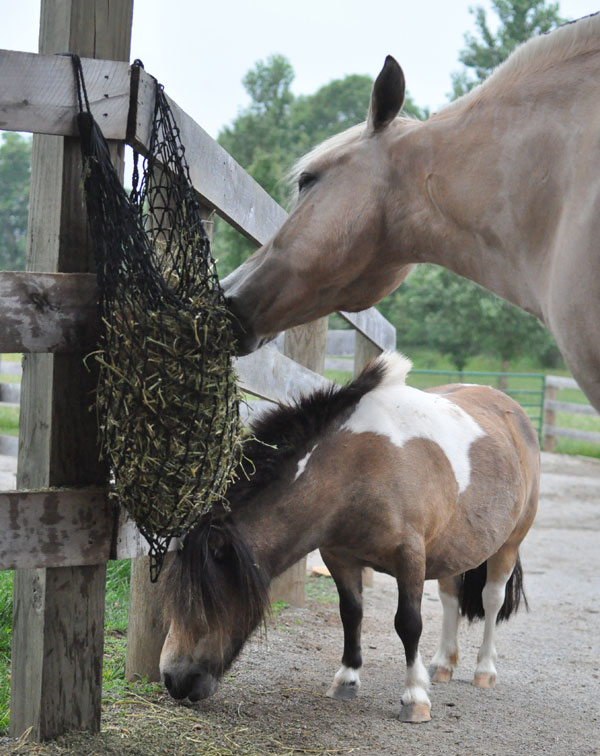
When you’re actively working on weight loss, you can calculate this amount based on the horse’s goal weight. If 800 pounds is the goal weight, 12 pounds of forage is still the minimum you should feed.
How do you know how much forage your horse is eating? If you feed hay, it’s pretty easy. Tie binder twine around a flake (or put a flake in a hay net) and hang it from a fishing scale. Then feed the horse the correct number of flakes to meet the required daily weight. Keep in mind this weight is accurate for that particular flake and will vary a bit by flake, bale, and batch. Repeat the weighing process from time to time to ensure your estimates are still accurate.
Pasture is a bit more difficult. To save you lots of time, researchers have studied how much grass horses on pasture actually ingest. Ask your local extension agent or do an internet search for “horse pasture intake rates.” Again, mileage will vary depending on the pasture and the individual horse, but you can get a working estimate.
Liked this article? Here’s more on equine nutrition:
Ask the Vet: Could My Horse’s Restricted Diet Lead to a Vitamin Deficiency?
Ask the Vet: What Kind of Diet is Best for Managing My Horse’s Weight?
Feeding an Easy Keeper


